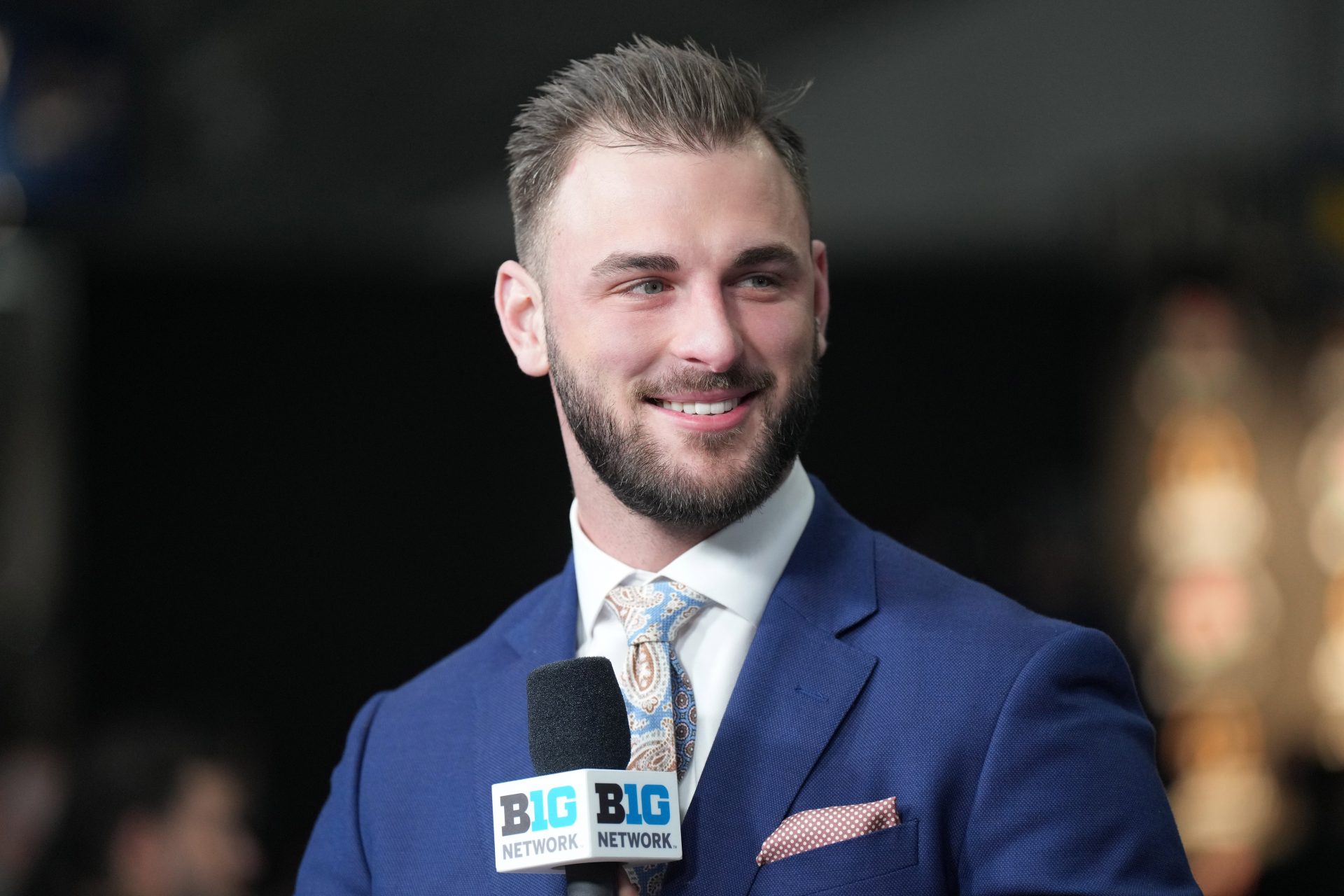College football players generate billions for universities, fill stadiums, drive TV ratings, and attract massive sponsorship deals. They do what employees do for companies, but there’s one catch. They can’t be called “employees.”
Instead, they’re labeled “student-athletes.” As analysts like Jake Butt recently pointed out, the industry avoids reality, and it all comes down to fear of legal consequences.
What’s Really Holding College Football Back From Change?
Jake Butt recently sat down with Adam Breneman for a candid conversation on “Next Up with Adam Breneman.” The two former athletes discussed what’s wrong with college football today, from NIL flaws to how players are treated like employees without the benefits.
Jake Butt was a two-time All-American at Michigan. Got drafted. Tore his ACL. Lost millions.
He’s lived the highs and lows of football… and now he’s breaking it all down.
We talked about how he almost got suspended over a free haircut.
Why the NCAA is stuck in fear.
What’s… pic.twitter.com/AKTYTtKUH8
— Adam Breneman (@AdamBreneman81) May 30, 2025
The conversation took a serious turn when they discussed how the NCAA still calls players “student-athletes” instead of what they really are. While the conversation mainly focused on this issue, both agreed that other changes are needed in the system. Yet fear of altering the status quo is holding college football back from evolving.
Jake Butt, a former Michigan tight end who won the John Mackey Award in 2016, pulled back the curtain on this issue. He explained the real problem is fear of legal trouble. If schools admit that players are employees, former athletes could sue for back pay. That fear has become the biggest roadblock to change.
How Does the System Control Players’ Academic Choices?
“We were. I mean, let’s be honest, I certainly felt like an employee, you know, an unpaid employee because they like to use the word student-athlete. But I always found it ironic athlete came first because I wasn’t allowed to take classes from 12 p.m. to 6 p.m. in any of the major semesters, which eliminated like half the key, you know, the good, you know, degrees that you could pursue,” Butt said.
The NCAA defends its amateurism model by saying athletes are students first. But Butt questions this, pointing out how athletes must prioritize sports over education. He believes most people involved in college football actually agree on how the future should look. The problem is they’re struggling to overcome fear of lawsuit troubles.
RELATED: Recruiting Drama Building as 2026 5-Star QB Ryder Lyons Trends Toward Oregon
“It seems to me that if you asked most of the players, most of the coaches, most of the leadership across all conferences, I’d imagine like people agree on 80% of what they want the future to look like. So it’s just, it’s that fear of being sued that’s holding us back,” Butt added.
Where Is College Sports Heading With Current Legal Battles?
The fear Butt mentioned isn’t unfounded. The House v. NCAA settlement faces a final approval hearing on April 7, 2025. If approved, it would resolve three antitrust lawsuits and require the NCAA to pay $2.78 billion in back damages to former athletes.
More importantly, the settlement would allow schools to share revenue directly with players starting July 1, 2025. Schools could share up to $20.5 million annually, representing about 22% of revenue from media rights, ticket sales, and sponsorships.
Meanwhile, a U.S. appeals court ruled in July 2024 that college athletes whose efforts primarily benefit their schools may qualify as employees under federal wage laws. This adds more pressure to the employee classification debate.
Why Does This Matter for College Football’s Future?
Butt’s career shows why this matters. He tore his ACL in the 2016 Orange Bowl, significantly impacting his NFL draft stock. After suffering three ACL tears throughout his career, he retired in 2021. His story highlights the risks players take without employee protections.
Breneman, now a college football analyst and co-founder of The College Sports Company, understands both sides of this issue. He played as an All-American tight end and later became the youngest assistant coach in Power Five football at Arizona State.
Maybe not now, but eventually, the NCAA will have to confront reality. As Butt said, if around 80% of the system wants change, they’re literally holding themselves back for no reason. The question isn’t whether change is coming, but how quickly college football will adapt to its new reality.
College Sports Network has you covered with the latest news, analysis, insights, and trending stories in football, men’s basketball, women’s basketball, and baseball!


